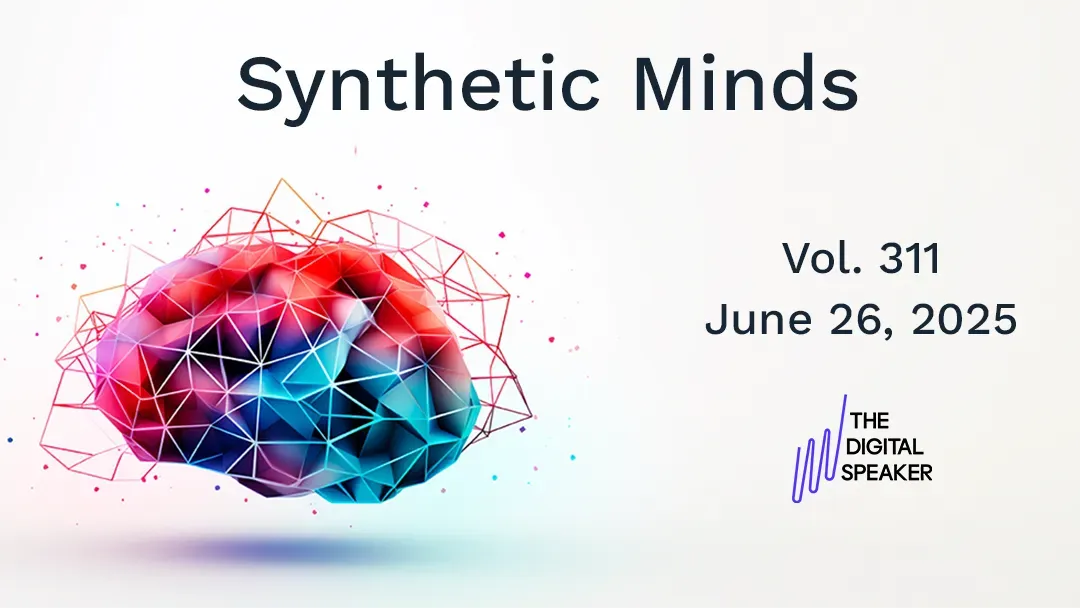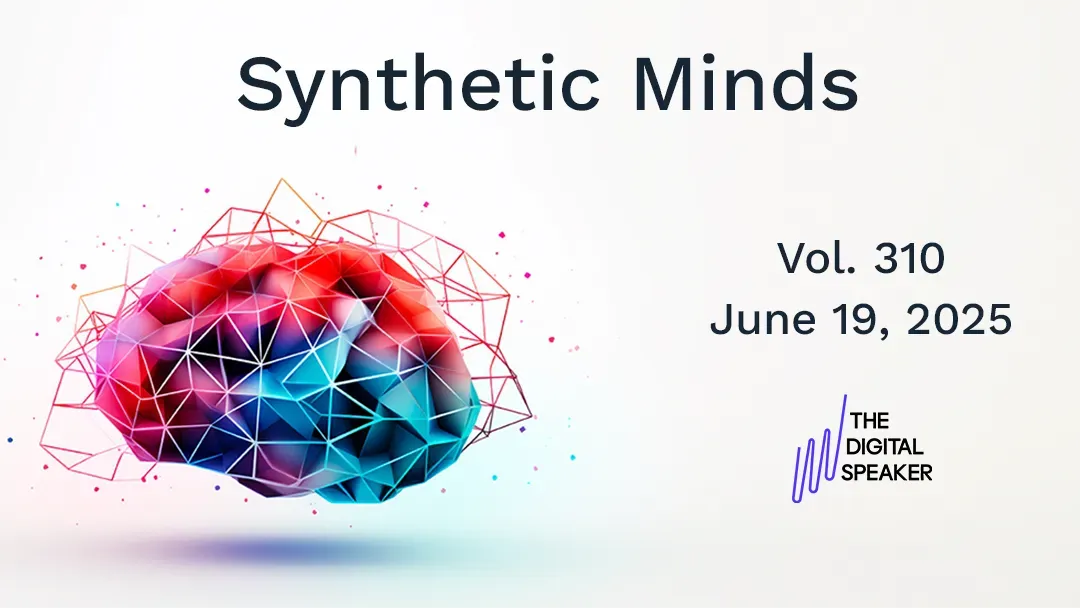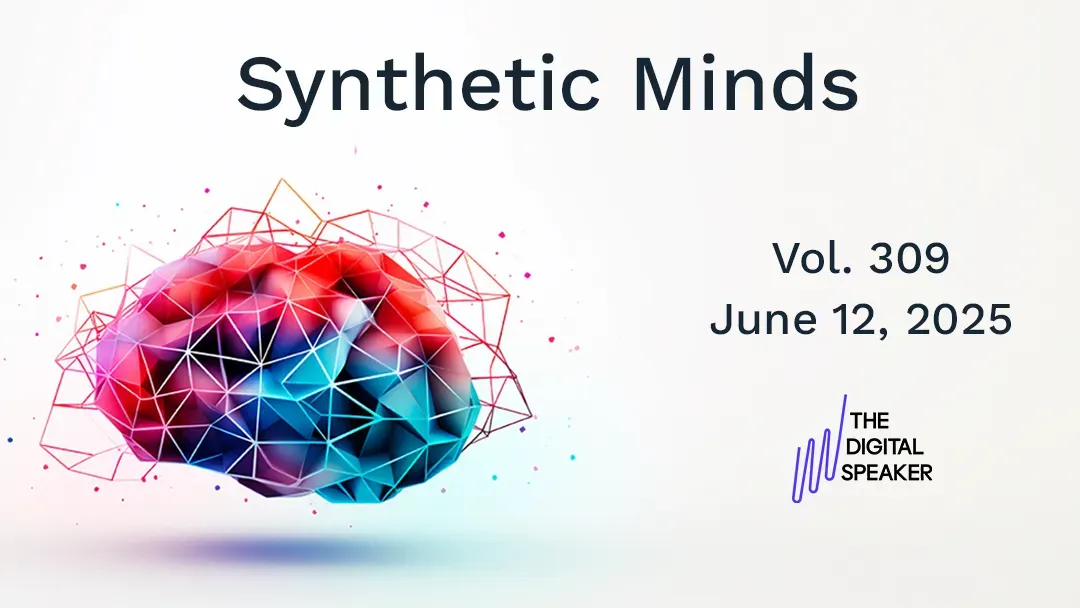The f(x) = e^x | Unleashing the generative AI genie

Good Day! This is my weekly newsletter, with a dose of insights into the future. The topic of this newsletter is the exponential times we live in, hence the title of f(x) = e^x, which is the (natural) exponential function.
You can visit The Digital Speaker to book me as a keynote speaker for your next event or to hire me as a future tech coach for your CEO. Don't forget to tune in to my Step into the Metaverse podcast or read my top ten technology trends for 2023.
Unleashing the Generative AI Genie: A Brave New Metaverse or a Nightmare Scenario?

My latest article:
Exciting times are ahead as the convergence of generative AI and the metaverse takes shape! If 2021 was the year for the metaverse, 2022 was the year for generative AI. In the past months, Generative AI took the world by storm and in 2023, these disruptive forces will converge to kickstart the immersive internet and unleash creativity like never before.
The metaverse is the next iteration of the internet, where physical and digital worlds merge to create immersive and interactive experiences. Generative AI can create unique content, from text to entire virtual worlds, and is set to disrupt the way we experience the metaverse.
The use of generative AI in the metaverse has the potential to transform the immersive internet before it has even arrived. However, it is certainly not without risks, and we could end up in a dystopian future. However, with the right governance to overcome these challenges, we could end up in a magical human-centric metaverse.
Useful Nuggets of Information
My weekly tips from around the web to get you thinking.
1. As expected, our brain moves between order and chaos.
New research using brain imaging on people undergoing brain surgery for epilepsy has shown that our minds flit between stability and chaos as we go about our daily activities. The scientists behind the study hope that by understanding the patterns of brain activity, they may one day be able to help people suffering from neurological disorders by finding the sweet spot between the two extremes. (MIT)
2. The battle of the bots is heating up!
Google's new chatbot, Bard, is set to take on the mighty ChatGPT. Bard will be available to a select group of "trusted testers" before being unleashed on the world later this year. It promises to explain complex subjects in simple terms. Google also recently invested in AI start-up Anthropic, which has its own AI chatbot named Claude. (Time)
3. Zoom fatigue: when video calls go from hype to reality.
Zoom, the video conferencing platform, recently laid off 15% of its staff, or about 1,300 people. This came after the company had tripled its headcount in the past two years. The CEO, Eric Yuan, took responsibility for the layoffs and vowed to reduce his salary by 98% to $10,000. (Wired)
4. Every VC now has a ChatGPT tab open.
Venture Capital firms have been struggling to find the next big thing to get excited about, but they seem to have finally found it: Generative AI! Just like Web3 was supposed to change the financial system, ChatGPT is now supposed to disrupt everything from education to knowledge work, and VCs are pouring billions into the next big thing. Though, not everyone agrees. (FT)

I Think, Therefore I Create
This weekend, my 3-year-old daughter and I played with Midjourney. I asked her to imagine anything she wanted, and she said a 𝗿𝗮𝗶𝗻𝗯𝗼𝘄 𝘂𝗻𝗶𝗰𝗼𝗿𝗻!, which I entered as the prompt. She was ecstatic when the above image appeared in front of her eyes in real-time. 🦄
The generative AI tools that have flooded the market are fantastic tools for parents and children to drive creativity. Generative AI truly democratises creativity.
I believe that teaching our children from a young age how to use these tools is vital, which is why, as I wrote before, schools banning ChatGPT does not make sense to me. It feels like laziness as it is easier to ban new technology than to start thinking about embracing it and preparing our children for their future.
Imagine how these technologies will literally rewire the brains of the future generation if we teach them how to use them responsibly. Imagine then what Gen Alpha, or should we say Gen AI, will come up with in the years ahead when they are older.
The future is full of opportunities, but we must ensure that Gen AI understands how to deal with these technologies. I have a few ideas around this, and with my new research institute, we will also focus on helping children become digitally literate; after all, many children might be digitally native, but they are not digitally literate.
How should we tackle this massive challenge of educating the future generation about using these powerful tools?
Know someone who needs the f(x) = e^x?
Forward it to someone who might like it too.
Subscribe here if it was forwarded to you.




